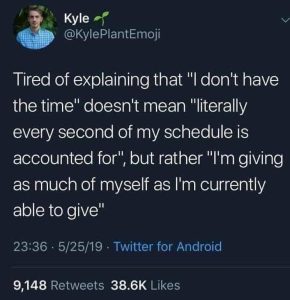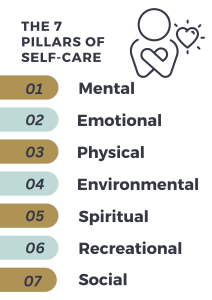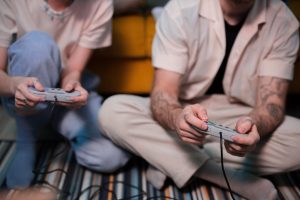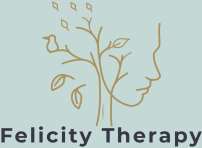The long school summer holiday is drawing to a close and as usual I feel like we’ve wasted a lot of it.
When I was a teacher I lived for the 6 week holiday. With a husband also working in education, and school-age children, it has always been a time for us to spend quality time together free of sporting commitments and school timetables. Before every holiday I would dream of get-togethers with people I hadn’t had time to meet up with, days out here, there and everywhere, big sort-outs, LEGO set building and relaxation. In the last week of the holiday I would always lament how little of that actually happened although there were usually plenty of family days out because of the kids and the dog. But those other dreamed-of elements - not so much. There just isn’t enough time. Which is a nonsense of course. There’s loads of time in a six week break. We obviously just wasted it. Or did we?
I came across a tweet which made me stop and think about what having time and being busy really look like:

And I realised that our holidays have never been wasted. They’ve been whatever we needed them to be at the time. And the little projects I had imagined myself completing work only what I imagined I wanted to do with my spare time, but really what I wanted to do was sometimes as little as possible.
Self care is starting to look for me a lot more like self-compassion and self-forgiveness lately. By taking the pressure off myself and recognising that I don’t have to fill every moment with activity so as not to look like I am wasting time, I am taking care of myself and my mental load.
I found out last year that I have ADHD. The diagnosis has helped me to make sense of a lot of my childhood experiences and behaviours and many of my adult ones. One such behaviour is my tendency to overcommit myself and then beat myself up over not having 30 hours in a day. Recognising this trait and reminding myself often of it has helped me to maintain headspace.
Self care is different for all of us. Only you know what makes you feel mentally and physically well. The internet offers loads of tips on self-care and consensus suggests there are 7 pillars of self-help for us to focus on and that we should try to balance these needs:

 Mental
Mental
Our minds need stimulation and they also need rest. Puzzle books, mindfulness exercises, journalling and technology breaks are all helpful methods of mental care. Learning a new skill or a language can also be beneficial.
Emotional
 Our emotional health is often neglected. We often put a lot of energy into suppressing our feelings, particularly when working in a professional environment. Ways in which we can care for our emotional health include watching films that make us feel emotional - allowing us to ‘let it all out’; listening to our favourite music; asking for help and support when we need it and being compassionate towards ourselves. And, dare I say it, therapy can be an excellent form of emotional self-care.
Our emotional health is often neglected. We often put a lot of energy into suppressing our feelings, particularly when working in a professional environment. Ways in which we can care for our emotional health include watching films that make us feel emotional - allowing us to ‘let it all out’; listening to our favourite music; asking for help and support when we need it and being compassionate towards ourselves. And, dare I say it, therapy can be an excellent form of emotional self-care.
 Physical
Physical
Our physical health heavily influences our mental state. When we’re ill we rarely feel happy and energised and ready to take on the world so it’s important that we care for ourselves physically. This can be as simple as staying hydrated and getting a good amount of sleep. Vitamin supplements and healthy eating can also contribute to us being physically healthier. Exercise is also important and it doesn’t have to be an Insanity workout (although if you like that sort of thing, go for it) it can be a fast-paced walk that gets the blood going or a dance in your kitchen to your favourite tunes - taking care of an emotional need at the same time.
Environmental
 Our surroundings have a major impact on us. Even just rearranging a room can make us feel better. Getting out and about is essential - whether you’re treading a familiar path or exploring a new one. A friend of mine wrote a lovely blogpost recently about being a nemophilist - someone who loves the woods and forests (not little lost clown fish) which you can read here and it reminded me of the wonder of the woods and how calm and happy I am when I’m in them. Catering to our senses also counts towards this element of self-care so light the candles, eat or drink something delicious and listen to your favourite music.
Our surroundings have a major impact on us. Even just rearranging a room can make us feel better. Getting out and about is essential - whether you’re treading a familiar path or exploring a new one. A friend of mine wrote a lovely blogpost recently about being a nemophilist - someone who loves the woods and forests (not little lost clown fish) which you can read here and it reminded me of the wonder of the woods and how calm and happy I am when I’m in them. Catering to our senses also counts towards this element of self-care so light the candles, eat or drink something delicious and listen to your favourite music.
 Spiritual
Spiritual
We all need a sense of meaning and activities that provide us with a sense of that take care of our spiritual needs. Finding connection in a community, volunteering for a service or taking time to identify our values and take part in activities reflecting them are also important.
Recreational
 Whether it’s building LEGO sets, playing video games, reading, cooking or playing sports, everyone needs a hobby. Perhaps your hobby can contribute to one of the other pillars - even better!
Whether it’s building LEGO sets, playing video games, reading, cooking or playing sports, everyone needs a hobby. Perhaps your hobby can contribute to one of the other pillars - even better!
 Social
Social
Connecting with other people is a vital aspect of self care but not everyone we connect with contributes to our wellbeing. For self-care, choose to connect with family, friends or an online community that reminds you of the best parts of yourself. That aunty that always comments on your weight is possibly not the go-to for this.
Now, if all this leaves you feeling like you don’t have time for any of it, remember that it’s not about all of the pillars all of the time but it is about balance. You might be great at going to the gym, maybe that’s your hobby but if going to the gym prevents you from having a coffee with a friend or from having time to get out for some fresh air, it’s worth redressing that balance. And if you're not sure what type of self-care you are most in need of, Catherine at The Blissful Mind has put together a handy quick quiz which you can use to help you find out
In writing this, I’ve come to realise that I can turn some of my ‘daily grind’ activities into self-care opportunities. A recent read of Gabor Maté’s In the Realm of Hungry Ghosts raised my awareness of the importance of ‘intention and attention’ and making a conscious mental effort. Now when I take the dog for a walk, I remind myself of the environment I’m in and intentionally make it an opportunity for self-care, not just a task related to being a dog-mum. I pay attention to the smells, sights and sounds of my environment rather than playing through conversations I wish had gone differently or thinking about what to have for lunch or doom-scrolling on my phone (which had gotten so bad my neighbours had started commenting on it).
I hope this post helps you to find ways to address your self-care needs and if you ever want to try therapy for emotional self-care, drop me a message.

References
The Blissful Mind - www.theblissfulmind.com
Maté, D. G. (2018) In the Realm of Hungry Ghosts: Close Encounters with Addiction. London: Vermilion
NHS self care - https://nshcs.hee.nhs.uk/training-support/healthcare-science-self-care-handbook/self-care-ideas-to-get-you-started/

 Mental
Mental Physical
Physical Spiritual
Spiritual Social
Social